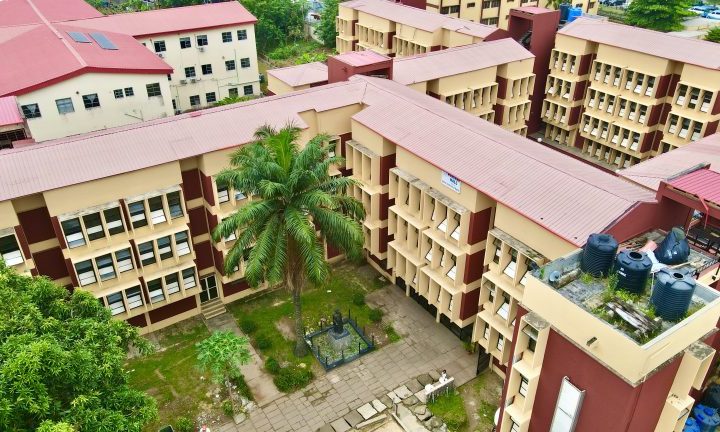
By: Eniola Adegboyega

The University of Lagos, a prestigious educational institution situated in Lagos, stands as a testament to the remarkable strides made possible through government funding. With strong reliance on financial support from the Federal Government of Nigeria, the university embarks on numerous projects every year, bolstered by allocations from the Federal Government budget. Notably, the university also secures funds from third-party sources and Internally Generated Revenue (IGR) to further advance its facilities and initiatives.
One such project that exemplifies the university’s commitment to development, is the ongoing construction of the new four-floor Moremi Hall of Residence extension. Funded by Internally Generated Revenue (IGR), this development stands as a testament to the university’s dedication to providing conducive residential facilities for its female students. Also, at the Faculty of Sciences, the ongoing construction of the NNPC/SNEPCo UNILAG Centre of Excellence (CoE) in Geophysics Project is currently underway. Funded by Shell Nigeria Exploration and Production Company (SNEPCo), the ongoing project demonstrates the university’s ability to secure external funding to foster campus development. Upon completion, this project will go a long way in enhancing research activities, training, and all other programmes being offered in the Department of Geophysics, Geoscience, and the entire Faculty of Science.
The University of Lagos also boasts of the ongoing construction of a remarkable research centre, the African Centre of Excellence for Drug Research, Herbal Medicine Development, and Regulatory Science (ACEDHARS). It is along the Tafawa Balewa Way beside the Department of Chemical Engineering and was made possible through funding from the World Bank Department of the Federal Government. The project would provide support in the production of standard herbal products, assist faculties’ research, and enhance the information database for quality control and post-marketing surveillance.
Additional ongoing projects include the construction of residential quarters near the scholar suites. financed by the Tertiary Education Trust Fund (TETFund). This endeavour aims to provide comfortable accommodation through sixteen well-designed flats, catering for the needs of staff.
To gain insights into the university’s operations and its dedication to maintaining an exceptional learning environment, Unilag Sun had the privilege of speaking with Engineer Johnson Ajayi Akinwande, the Acting Director of Works and Physical Planning of the University of Lagos. The director highlighted the Institution’s focus on electricity provision, water supply, and the overall enhancement of the campus environment.
Efficiently managing the provision of electricity, the University of Lagos ensures relatively reliable power compared to many other places within Lagos State. However, this reliability comes at a high cost, as the university purchases power from Eko Electricity Distribution Company (EKEDC).
“The university owns and maintains its distribution systems, encompassing cables, transformers, RMUs (Ring Main Units), and underground cables. These systems require substantial investment to ensure their proper functioning. While financial constraints may occasionally cause delays in response, the university takes proactive measures to address power requirements during special events, such as inaugural lectures or main auditorium events, by temporarily switching to generator power to ensure uninterrupted electricity,” he said.
Aside from financial considerations, external factors such as the collapse of the national power grid or faults in specific areas can also influence electricity supply. In response to these challenges, Engineer Johnson stated that the university is also exploring the feasibility of implementing captive power systems through the use of solar panels in certain areas.
“However, due to limitations, not all facilities can be powered by solar energy. The university is also investigating the option of generating its power by the federal government’s recent policy on power generation by states. Unfortunately, utilising the lagoon for hydropower generation is not viable due to the stagnant water and high salt content,” Engineer Johnson explained.
The director of works also highlighted several notable achievements within the department of works. Notably, the university has significantly reduced complaints in terms of issues and emergencies, ensuring a swift response to various challenges.
Transportation policies, including the introduction of bus stops and garages, have been implemented to improve traffic flow and transportation services on campus. Moreover, the university has embraced a proactive approach to energy conservation and responsible electricity usage, striving to meet the growing demands for water and electricity, given the continuous expansion of facilities and the increasing population on campus.





More Stories
Insurance, Employment Relations, Human Resources Management takes the lead on the MSA podium
Podium Maiden Edition Ends with Mass Communication Win
MSSN UNILAG holds 2024 Academic Counseling Seminar